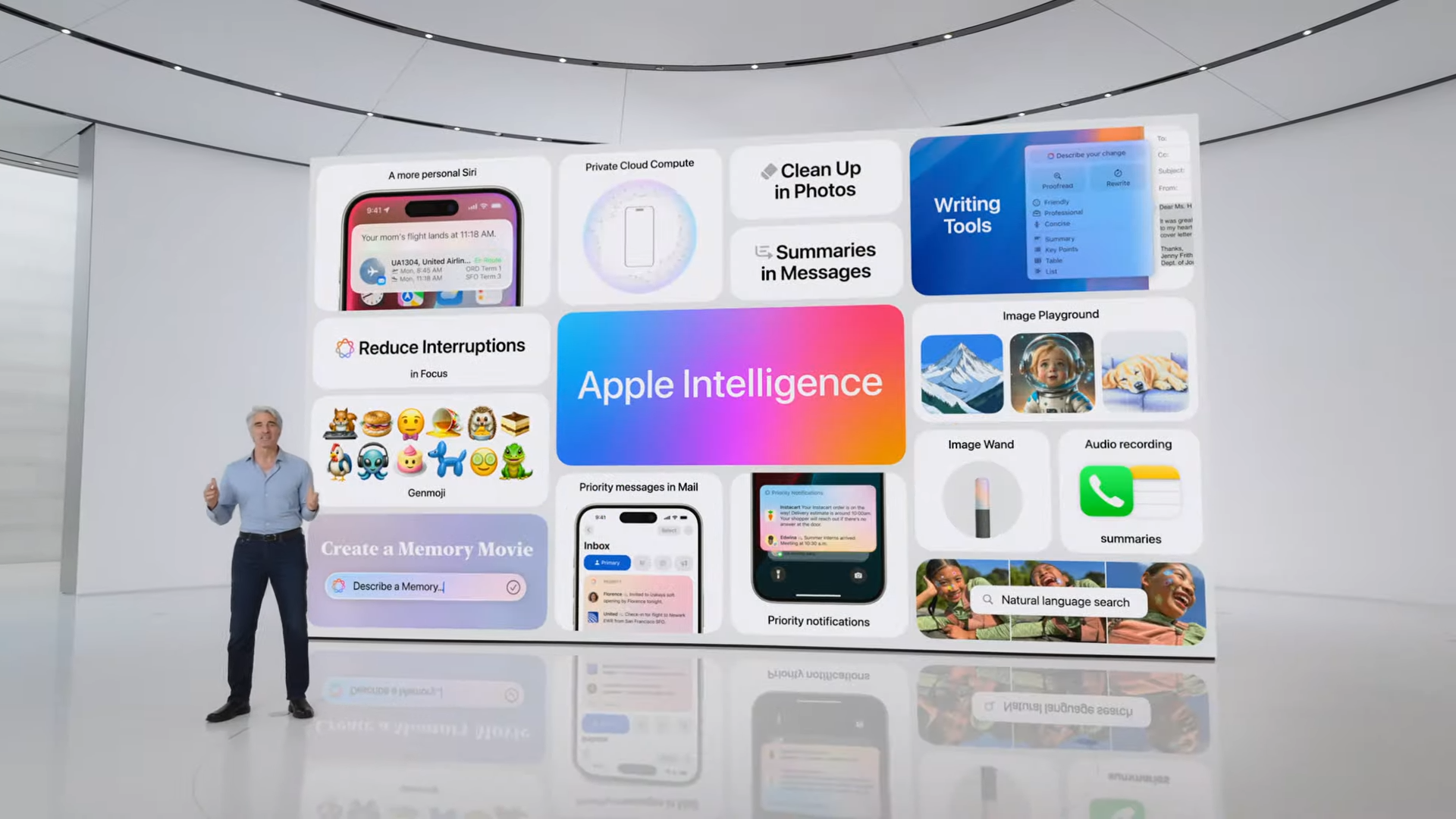
Apple launched Apple Intelligence during its WWDC keynote last month but there was no mention of it coming to one of the company's newest products — the Apple Vision Pro.
Apple Intelligence is the iPhone makers' answer to growing demand — and competition — for artificial intelligence technology in consumer hardware. It was confirmed to be coming to the most recent iPhone and any Apple Silicon Mac or iPad, but nothing else.
During WWDC the company revealed it would come to other platforms in the future and a report by Bloomberg’s Mark Gurman suggests VisionOS could be high on that agenda.
What is stopping the Vision Pro from running AI?

Apple’s Vision Pro has the hardware to run Apple Intelligence with 16 GB RAM and an M2, it's more powerful than some entry-level MacBooks. The issue is the interface.
According to Gurman: “Apple is actively working on bringing the features to the device, but it won’t happen this year.” That is because they need to come up with a new UI.
Interacting with Siri or Apple Intelligence on a phone, laptop or tablet isn’t that different to sending a message in iMessage, but finding a more usable interface for a spatial device is more complicated.
The user interface design team must develop a way to make the various aspects, such as writing tools, OpenAI's ChatGPT integration, and the new Siri work in a mixed-reality environment.
When might we get AI on the Vision Pro?
We may have to wait until WWDC 2025 and VisionOS 3 before we see the widescale rollout of Apple Intelligence to the Apple Vision Pro. However, as it is basically a version of iPadOS, if the developers create a suitable UI before then it may come sooner.
There is also growing competition from Meta. The Quest maker is integrating its MetaAI across all its mixed reality and smart wearables including the Ray-Ban glasses.
Meta hasn’t sat still in development either, building a range of smaller, larger and vision-based models including ones that run on devices.
Apple is said to have rejected Meta’s approaches over a partnership due to concerns over privacy in MetaAI, so this might also spur Meta on to further build out its own AI solutions.







